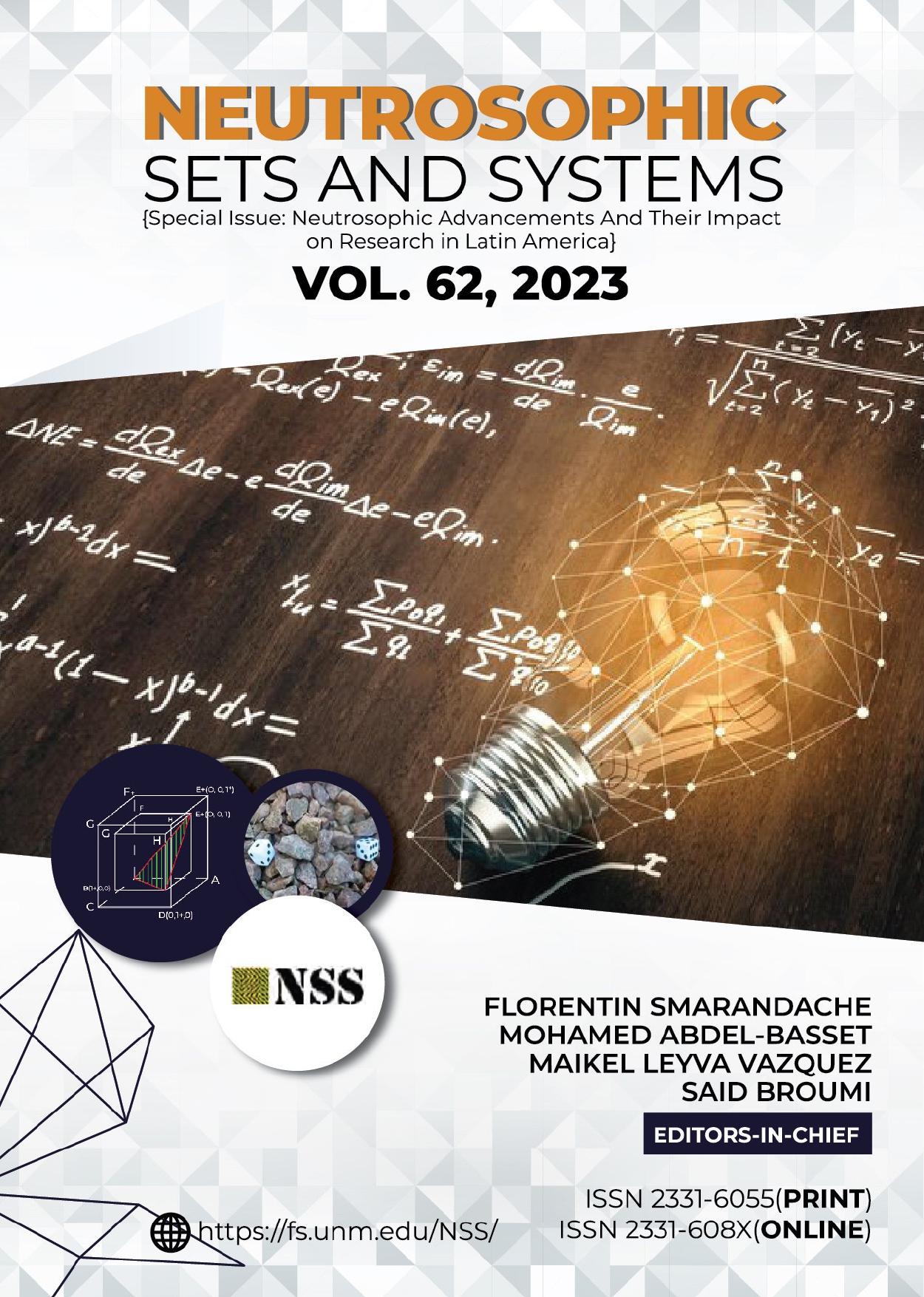Neutrosophic Analysis of Equity in the Justice System
Keywords:
Equity, Law, justice system, neutrosophy, philosophical theoryAbstract
Equity in the justice system is a fundamental principle of law that seeks to ensure fair and impartial treatment for all
individuals, regardless of their characteristics. The Ecuadorian justice system faces challenges regarding its equity and effi
ciency, including concerns about access to justice, impartiality in decision-making, corruption, and the lack of independence
in the judicial system. Neutrosophy, as a philosophical theory that promotes neutrality and impartiality, is useful in the analysis
of equity in the justice system. It helps identify systematic inequalities and discrimination in the justice system, which is es
sential for finding fair and equitable solutions. Evaluating equity in the Ecuadorian justice system involves considering multiple
aspects and factors. Six study alternatives were identified and the most significant elements for the analysis of equity in the
Ecuadorian justice system were analyzed using neutrosophic techniques. This contributes to improving equity in the justice
system and ensuring fair and equitable treatment for all Ecuadorian citizens.
Downloads
Downloads
Published
Issue
Section
License
Copyright (c) 2023 Neutrosophic Sets and Systems

This work is licensed under a Creative Commons Attribution-NonCommercial-ShareAlike 4.0 International License.







